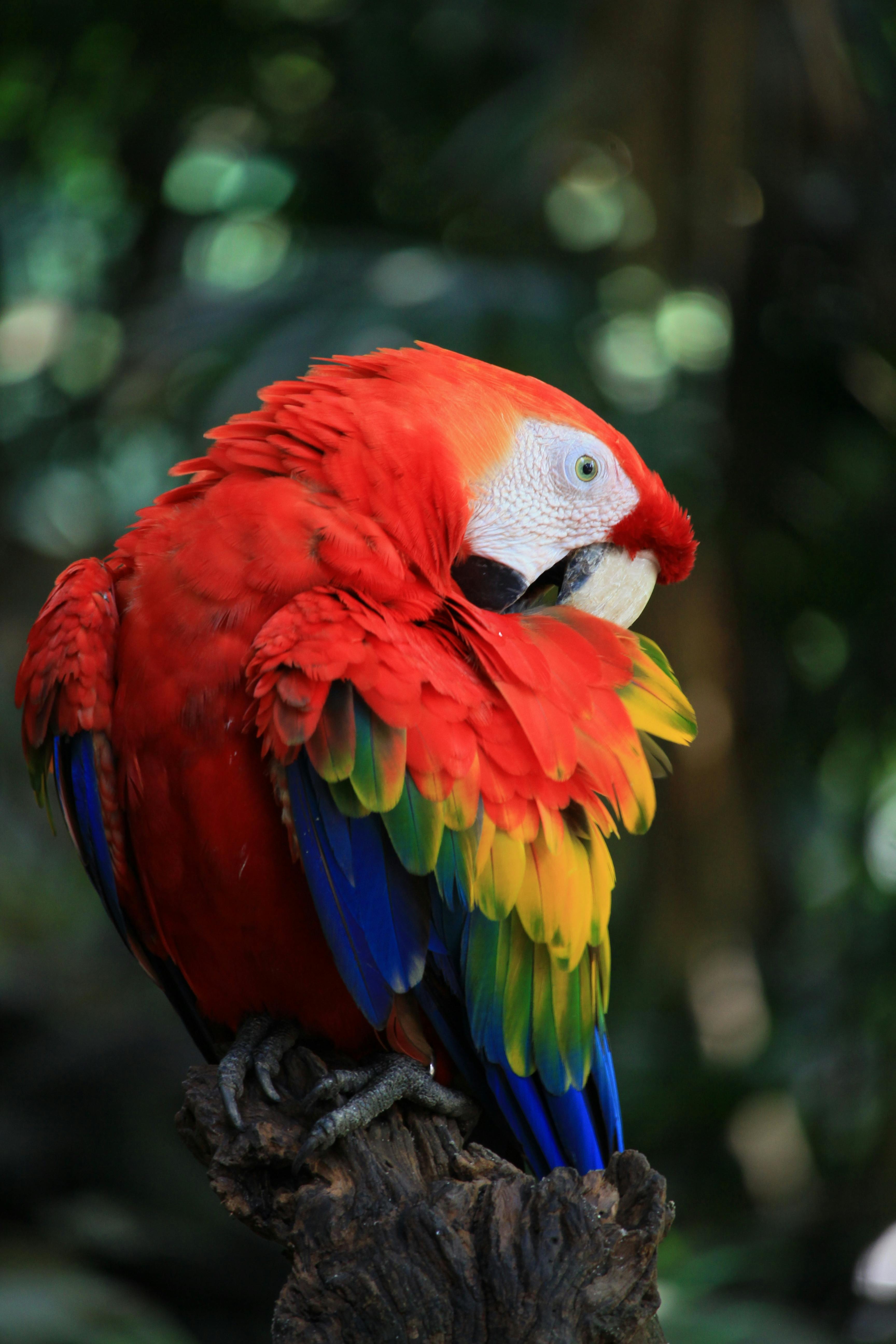🐹

Essential Guide to Hamster Care for Kids
Owning a hamster can be a delightful experience for children and adults alike. These small pets are known for their playful and curious nature, making them excellent companions for families. Whether you're considering getting a pet hamster for your child or you're looking to improve your hamster care routine, understanding the needs of these adorable rodents is crucial. In this guide, we'll explore everything you need to know about hamster care, from their habitat requirements to their diet and health tips.
Having a hamster also teaches kids valuable lessons in responsibility and compassion as they take care of their new furry friends. This article will cover essential hamster care tips, such as setting up the perfect hamster habitat, selecting the best hamster food, and understanding their unique behaviors and needs. By providing an enriching and safe environment, you'll ensure that your hamster thrives and remains a happy member of your household.
Here’s what you can expect to learn in this guide:
- Fundamentals of setting up a hamster habitat
- Best practices for hamster nutrition and diet
- How to keep your hamster healthy and happy
- Tips for hamster exercise and playtime
- Common challenges in hamster ownership and solutions
By the end of this article, you'll have a comprehensive understanding of how to care for your pet hamster properly and create a wonderful relationship with your new pet!
How to Set Up the Perfect Hamster Habitat
Creating an ideal environment for your hamster is foundational to its well-being. Hamsters need a spacious and secure cage that allows them to explore and exercise. A suitable hamster habitat must mimic their natural burrowing environment, making it essential to choose the right type of cage and accessories.
Choosing the Right Hamster Cage
When selecting a hamster cage, consider the size and the type of hamster you own. For instance, Syrian hamsters need larger cages compared to dwarf hamsters. Ensure that the cage has solid floors, proper ventilation, and is made from safe materials. Avoid cages that are primarily made of plastic, as they can be chewed up easily. Additionally, look for habitats with multiple levels to enrich your hamster's living space.
Essential Bedding Options for Comfort
Hamster bedding plays a vital role in creating a comfortable habitat. Choose bedding materials that are absorbent and safe for your pet. Aspen shavings and paper-based bedding are among the best options since they are gentle on your hamster's paws and help control odor. Avoid cedar or pine shavings, as they can be harmful to hamsters.
Creating an Enriching Environment
Your hamster should have enough stimulation to thrive. Offer various toys and accessories such as tunnels, hiding spots, and chew toys. This helps in preventing boredom and encourages natural behaviors such as foraging. Incorporate a hamster wheel, which offers excellent exercise opportunities while keeping your pet entertained.
To ensure a safe environment, keep the habitat in a quiet area, away from direct sunlight and drafts. Regularly clean the cage and replace bedding to maintain a hygienic habitat. With these elements in place, your hamster will have a happy and healthy home!

Best Practices for Hamster Nutrition and Diet
Feeding your hamster a balanced diet is vital for its overall health and longevity. Hamsters are omnivores, meaning they require a combination of grains, vegetables, and proteins. Understanding hamster nutrition is essential for promoting a healthy and vibrant lifestyle.
Top Choices for Hamster Food
The best hamster food typically includes high-quality commercial pellets that meet their nutritional needs. Look for brands specifically formulated for hamsters that include grains, seeds, vegetables, and essential vitamins. You can enhance your hamster's diet with occasional fresh fruits and vegetables such as carrots, broccoli, and apples, but remember to introduce new foods gradually to avoid digestive upset.
Understanding Hamster Dietary Needs
Hamsters require a varied diet for optimal health. Ensure that their diet comprises at least 20% protein from sources like mealworms or specially formulated protein-rich hamster treats. Seeds should be given in moderation due to their high-fat content, and avoid sugary or fatty snacks. Additionally, always provide fresh water, which should be changed daily.
Common Dietary Mistakes and Solutions
It's easy for new hamster owners to make mistakes when feeding their pets. One common error is overfeeding, which can quickly lead to obesity. Monitor your hamster's weight regularly and adjust food portions accordingly. Another mistake is neglecting the importance of roughage; including chewable items such as hay can aid in dental health.
By ensuring proper nutrition and a balanced diet, you will contribute to your hamster's happiness and longevity. Moreover, good nutrition supports their activity levels and overall well-being.
Understanding Hamster Health and Wellness
Keeping your hamster healthy is crucial for a long, happy life. Regular health check-ups and attention to behavior can prevent common diseases and identify health issues early. Understanding hamster health is integral to becoming a responsible pet owner.
Recognizing Signs of Illness
As a hamster owner, it’s important to recognize signs of health issues. Typical symptoms include lethargy, changes in appetite, abnormal grooming, or unusual behavior. If you notice any of these signs, consult a veterinarian promptly. Regularly observing your hamster can help you catch potential problems early.
Common Hamster Diseases and Prevention
Hamsters are prone to a few common diseases such as wet tail, which can be life-threatening if not treated quickly. Providing a stress-free environment, proper diet, and maintaining hygiene can largely prevent many health issues. Regular cleaning of habitats and keeping them dry also reduces the risk of bacterial infections.
Hamster Health Checkups and Vaccinations
While hamsters don’t require vaccinations, regular health checkups can help monitor their health and discuss any concerns with a vet. Discussing diet, behavior, and living conditions with a vet will provide valuable insights into keeping your pet healthy.
These preventive measures and being aware of your hamster's health needs will ensure that your pet leads a long, fulfilling life.

Engaging Your Hamster: Exercise and Playtime
Exercise is vital for hamsters to maintain a healthy weight and mental well-being. Engaging in playtime promotes physical activity and stimulates their natural behaviors. Understanding this aspect of hamster care allows for a happy and well-rounded pet.
Benefits of a Hamster Wheel
A hamster wheel is an excellent tool for your pet’s exercise routine. It gives them a safe outlet for energy without needing extensive supervision. Ensure the wheel is the right size for your hamster; for example, a Syrian hamster needs a larger wheel than dwarf varieties. Regular playtime outside the cage—under supervision—is also beneficial.
Top Toys for Mental Stimulation
Incorporate various safe toys to enrich your hamster's environment. Chew toys, tunnels, and climbing structures help to stimulate your pet's mind and keep them active. Avoid toys with small parts that can be dangerous if ingested. Rotating toys will sustain interest and promote healthy exploration.
Creating a Hamster Exercise Routine
Establishing a consistent exercise routine will benefit your hamster’s physical health. Allow for playtime outside the cage a few times a week in a safe, enclosed area. Use tunnels and small obstacles to create an engaging course. These activities not only support exercise but also deepen the bond between you and your hamster.
Incorporating these exercise techniques into your hamster care plan will result in an enriched, happy pet. By making time for play and exercise, you're investing in your hamster's health and happiness.
Common Challenges in Hamster Ownership and Solutions
As a hamster owner, you may face various challenges such as behavioral issues, health problems, or habitat maintenance. Understanding these challenges and having a plan to address them will help you create a nurturing environment for your pet.
Addressing Behavioral Issues
Hamsters can exhibit behaviors such as biting or excessive scratching. Biting may be due to stress or fear, while scratching often indicates discomfort or an unhealthy habitat. Handle your hamster gently and regularly, allowing it to become accustomed to human interaction. Beware of signs of excitement, as this could indicate playfulness or stress.
Managing Health Concerns
If your hamster shows signs of illness, consult with a vet promptly. Preventive care, such as proper nutrition and habitat sanitation, will help mitigate health issues. Regularly check your hamster’s weight and keep a journal to track any changes in behavior or eating habits.
Maintaining a Clean Habitat
Keeping your hamster’s home clean is vital for their overall health. A hygienic environment prevents the proliferation of bacteria and disease. Establish a cleaning routine that involves spot cleaning daily and a deep clean of the habitat weekly. This consistency will ensure a safe living space for your furry friend.
By understanding the challenges associated with hamster care, you can make informed decisions that promote a good quality of life for your pet.
Q&A: Common Questions About Hamster Care
What is the ideal lifespan of a hamster?
The typical lifespan of a hamster ranges from 2 to 3 years, depending on the breed. Syrian hamsters often live a bit longer than dwarf breeds.
How often should I clean my hamster's cage?
You should spot clean your hamster's cage daily and conduct a thorough cleaning at least once a week. Make sure to replace bedding frequently for hygiene purposes.
What is the best way to introduce a new hamster to an existing pet?
Introduce new hamsters slowly and in neutral territories. Monitor their behaviors during the initial introductions closely, and it may take time for them to adjust to one another.
Can I feed my hamster fruits and vegetables?
Yes! However, it’s essential to introduce fruits and vegetables gradually and in moderation, as some can upset their stomachs. Always avoid citrus fruits.
How Can I bond with my hamster?
Spend quality time handling your hamster gently and frequently. Offering treats when you're bonding can also encourage a positive relationship.